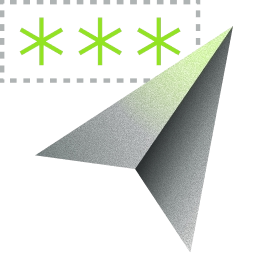Their agreements are powered by Yousign
on G2
The eIDAS Regulation
The eIDAS regulation, an acronym for Electronic Identification, Authentication and trust Services, is a European law adopted in 2014 that aims to standardise and secure digital trust services, including electronic signature, authentication and trust certificates. This regulation enables businesses, institutions and citizens to conduct electronic transactions within a secure and legally recognised framework, regardless of their location in Europe.
With eIDAS, European businesses can sign and exchange documents with complete confidence, ensuring the authenticity, integrity and legal validity of their digital transactions.
eIDAS framework is built upon three types of electronic signatures:

Simple
SES
Safety level: Limited
A basic signature method, often used for documents requiring a limited level of security.
Registration forms, acceptance of Terms and Conditions
Limited; may not be legally binding

Advanced
AES
Safety level: Medium to high
A more secure signature, uniquely linked to the signatory and able to detect any changes to the signed document.
Commercial contracts, HR documents
Legally recognised with enhanced reliability

Qualified
QES
Safety level: High
The highest level of security, offering a legal value equivalent to a handwritten signature and requiring the use of qualified certificates.
Notarial deeds, financial agreements, contracts
Legally equivalent to a handwritten signature
Why is eIDAS important?
The eIDAS regulation is of crucial importance to businesses, as it guarantees the legal validity of electronic transactions, harmonises signature practices across Europe and promotes a secure digital environment. The main benefits of eIDAS compliance for businesses include:
Enhanced transaction security
eIDAS defines rigorous standards for electronic signatures, ensuring the integrity and authenticity of documents.
International legal recognition
An eIDAS-compliant signature is legally valid in all EU countries, making cross-border transactions easier.
Reduced risk of fraud
By imposing levels of verification and qualified certificates, eIDAS considerably reduces the risk of falsification and identity theft.
Process optimisation
eIDAS-compliant electronic signatures enable businesses to dematerialise and accelerate their document processes.
Strengthened customer confidence
By offering greater security and transparency, eIDAS compliance helps to improve the relationship of trust with customers and partners.
Ensure the compliance of your electronic signatures with Yousign
Yousign can help you set up electronic signatures that comply with eIDAS regulations.
How eIDAS affects businesses
The eIDAS regulation is having a significant impact on businesses operating within the European Union, providing them with a secure framework for digital transactions and harmonising electronic signature standards. Here are the main effects of eIDAS on businesses:
Key Steps for eIDAS compliance
Identify your signature requirements
Determine whether your documents require a simple, advanced or qualified signature, depending on their legal importance.
Choosing a trusted service provider
Choose a certified eIDAS-compliant electronic signature provider, such as Yousign, which guarantees the security and legal validity of your transactions.
Setting up authentication processes
Ensure that the identity of signatories is properly verified to reinforce the reliability of transactions.
Train your team
Inform your staff about the benefits and best practices of eIDAS compliance to maximise the adoption and effectiveness of the solution.
Monitoring regulatory developments
Stay up to date with any updates and adjustments to the eIDAS standards to ensure ongoing compliance.
Yousign is eIDAS compliant
-
Certified third party
A trusted service and certification authority approved by the European Commission.
-
100% eIDAS-compliant signatures
All Yousign electronic signature processes are certified and recognised throughout Europe.
-
All-in-one application
The electronic signature is fully recognised and compliant with European regulations (eIDAS).
-
Made in the EU
Solutions created and hosted exclusively within the European Union.
Start your
free 14-day trial
Over 30,000 European companies already trust Yousign to sign and verify their documents. Join them today.










